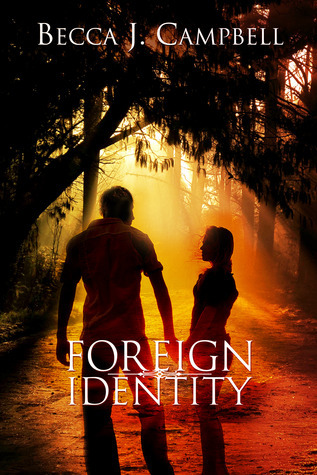What do you think?
Rate this book


ebook
First published May 1, 2012
I have given the book 3 out of 5 stars on Goodreads, but would ideally have given it 3.5.
The premise is a familiar one – two strangers find themselves imprisoned and must work together to escape. However, it is soon clear that the true tale lies in the characters’ struggle to recover their identities.
Campbell’s characterisation is immediately gripping; she feeds the reader just enough information to allow us to deduce the characters’ personalities, so that even if they don’t know who they are, we get a real sense of who they could be. Jax, our male protagonist, is immediately portrayed as the calmest of the pair – he knows how to keep his head under pressure and will logically work through all options until a solution is found. His female counterpart, Kel, is feisty but overly emotional – she finds it difficult to trust and works on instinct over logic. Together, they balance each other out nicely, and Campbell lays the hints to their relationship right from the opening scene. Unfortunately, Kel soon began to grate as she became more whiny and petulant, and I found her very annoying and a little clichéd by the end of the book, which made it very difficult to sympathise with her plight. Perhaps because we are less privy to his thoughts, I found Jax much easier to relate to, and he felt a well-rounded character with realistic character flaws that did not detract from his overall personality.
Campbell’s world-building is also to be admired. Although the landscapes she paints throughout Foreign Identity are very familiar – the woods and the cabin, in particular – her writing is such that we always have a sense that there is more than meets the eye, and the action continues to move along at a swift pace, regardless of location. There is one section near the beginning where the characters encounter a series of themed rooms within their prison; I found this concept extremely original and intriguing, and Campbell’s writing was skilful enough to bring each scene within the prison complex vividly to life.
The story itself was highly enjoyable, full of high-paced action and interesting revelations. Campbell seems to delight in twists and turns; her writing shines whenever we encounter a new, often significant development. However, I didn’t feel that Campbell pushed the boundaries of her world far enough. Throughout the novel, I persistently felt that the experience of Campbell’s world was limited by her characters’ perspectives, that there was much more to be uncovered beneath the surface, but the characters were holding the reader back slightly. I felt that some of the later character developments could have been left out in exchange for more time exploring the wonderful world Campbell has created.
Whilst enjoyable as a whole, there were some elements of Foreign Identity that jarred for me. Jax’s photographic memory, for example, was a convenient tool for explaining why the characters didn’t get lost in the maze of corridors in their prison, but seemed to serve no other purpose and apparently required no explanation as to why he had such a gift. Similarly, Kel’s period of severe withdrawal felt a little shoehorned in; it is never explained what she was addicted to, nor how that links with what we later learn of their previous lives, so it is unclear why this becomes such an important part of her characterisation in the middle of the book.
Overall, Foreign Identity is a thrilling, character-driven novel, with elements of romance and science fiction woven throughout. Opening with characters who know nothing about themselves, it is a testament to Campbell’s characterisation that the reader grows to care so much for them by the end of the novel. I frequently found myself thinking about the novel when I wasn’t reading it, mulling over the world Campbell has created and imagining what the end of the journey would reveal. More than anything, this is a novel about self-exploration and learning from past mistakes. I unfortunately found myself disappointed by the lack of depth and unresolved questions, so could only give 3.5 stars out of 5. However, I would not hesitate to recommend this book to anyone looking for an enjoyable read by a promising author. I will definitely read more of Campbell’s work in future.